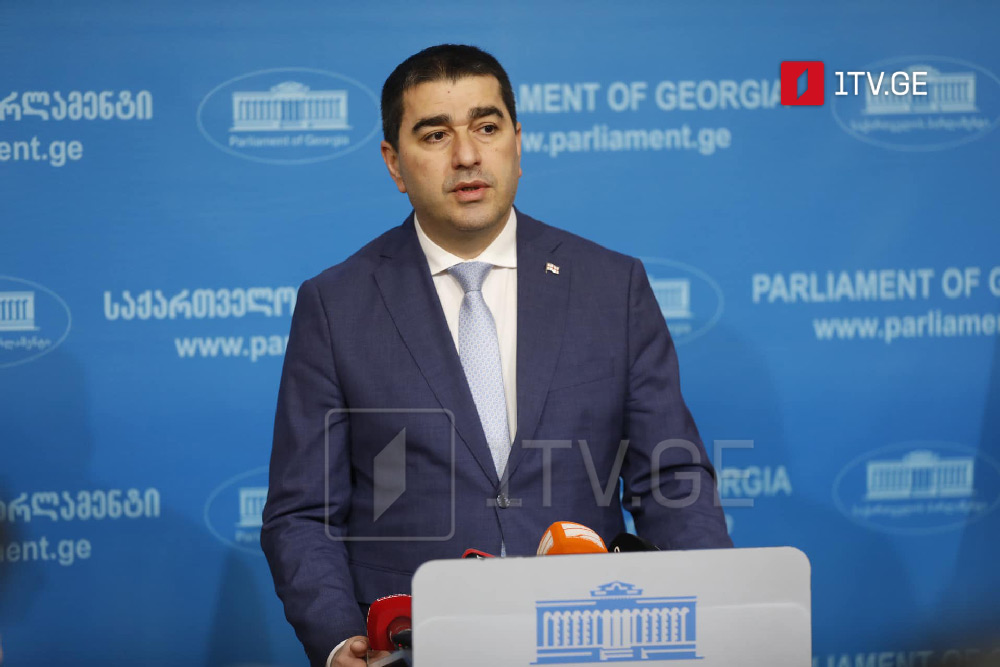Speaker criticizes donors and embassies saying 'NGOs funded by them incite violence and hate campaigns'
“I haven’t seen any statements from diplomatic representations or donors whose funding supports NGOs that encourage actions such as moving protests into narrow streets, approaching the government building, or blocking the parliament,” said Georgian Parliament Speaker Shalva Papuashvili.
According to him, the NGOs funded by these donors are urging rally participants to take actions that can lead to violence.
“I haven’t seen any statement from the diplomatic community or donors who fund the NGOs that call for actions like moving into narrow streets, going to the government building, or blocking the parliament, which is against the law. The sole purpose of such actions is to incite violence.
Eight police officers were injured, and one required surgery. Yet, I haven’t heard an apology or a statement from any donor or embassies,” Papuashvili said.
He noted that “The spiral of violence was initiated also by foreign-funded NGOs that launched a hate campaign against the bill [Transparency of Foreign Influence bill].”
“The hate becomes evident when NGOs and the opposition label members of parliament who support the bill as traitors and display their photos on websites sponsored by embassies. All embassies remain silent and finance psychological pressure and attacks on Georgian parliamentarians without distancing themselves from it. After these issues are resolved, we will discuss this with embassies to understand what it means to finance psychological attacks on MPs and hate campaigns with foreign citizens’ money.
The roots of this spiral of violence were established by the collaboration between NGOs and the radical opposition, and now society is caught in this cycle. We are trying to break this cycle, and the Prime Minister’s letter is part of this effort to guide society out of this spiral.
Both Georgian and foreign actors brought us into this cycle, urging the Georgian people not to think or discuss the issues. They labelled the proposed bill as the ‘Russian law,’ shouting and suppressing any rational discussion. We invite you to join the parliamentary discussions, share your arguments, and engage in healthy debates instead of shouting slogans,” Papuashvili concluded.
Speaker expressed concern about a statement from one of the embassies, which he found to contain the term ‘illegal detentions’. He called this a serious accusation and urged the embassy to reconsider its statement. Papuashvili also urged embassies and donors to examine video footage from the protests and identify participants from the NGOs they fund who may have escalated peaceful protests into violence.
“I saw a statement from one of the embassies where I read “illegal detentions“, this is a serious accusation. I urge the embassy to review its statement and clarify its definition of illegal detention. While embassies often issue statements with various references, they should not act as a court or tell the Georgian police what is legal and what is not,” Speaker said.
He noted that the six people who were detained had directly engaged in violence or damaged property. Among the arrested individuals, one was a Russian citizen.

